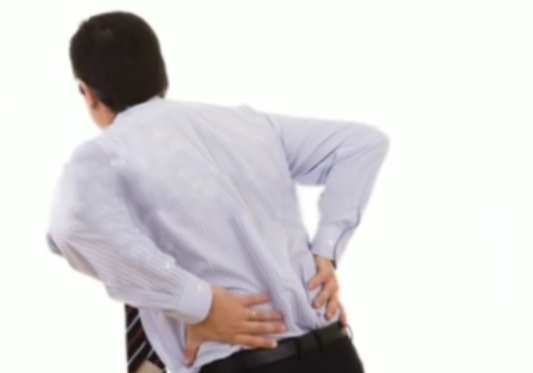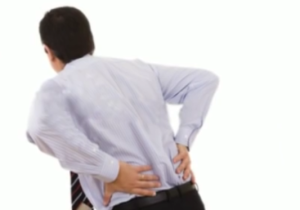Kidney pain is usually felt as excruciating and sharp pain in the middle or lower back area and/or in the flanks. Kidney pain is usually episodic, i.e., it comes and goes.
The kidneys are vital bean-shaped organs present on either side at the back of the abdomen, just under the diaphragm. Any kind of injury or condition that affects kidney function can cause pain. The most common causes of distinctive, shooting, and severe kidney pain are caused due to kidney stones and kidney infection.
Kidney pain tends to spread to the groin and back area. Hence, it may sometimes be confused with stomach pain or back pain, thereby causing people to ignore it. However, kidney pain occurs along with many other symptoms like fever, nausea, loss of appetite, vomiting, groin pain, urinary disorders, and swelling of feet and hands. In such cases, affected people need to immediately seek medical attention.
Causes of kidney pain
The most common causes of sharp kidney pain, along with the associated symptoms and treatments are listed below:
- Kidney stones: Kidney stones are caused due to crystallization of urine components into tiny, stony, hard substances. Such crystallization occurs due to dehydration or disturbances in the balance of minerals and fluids in the body. The presence of different substances such as cysteine, calcium, or uric acid, etc. in urine, in varying amounts, triggers the formation of different kinds of kidney stones. Such stones can pass into the ureters, block it, and obstruct the free outflow of urine. Subsequently, not all of the urine gets expelled from the body which causes the kidneys to swell up.
- Kidney stones associated kidney pain is termed as being ‘colic’ i.e., it tends to occur in waves. The pain commences in the left or right flank and radiates downwards as the stones pass down into the bladder. Additional symptoms include vomiting, nausea, abnormal urine color, bloody urine, and swelling of the face, hands, and feet.
- Treatment of kidney stones is dependent on the severity of kidney pain and associated symptoms and the size of the stones. Kidney pain can be alleviated via intake of non-steroidal anti-inflammatory drugs. Uric acid stones are eliminated via medications; smaller stones can be removed by drinking lots of water and the intake of diuretics; and large stones are removed via surgeries such as lithotripsy or ureteroscopic surgery.
- Limited intake of calcium supplements as prescribed; drinking lots of water and eating water-rich fruits like grapes, cucumbers, and melons, etc.; and limited consumption of uric acid rich foods like poultry, meat, and fish can help prevent the formation of kidney stones.
- Pyelonephritis/kidney infection: It is a type of UTI or urinary tract infection marked by kidney pain and inflammation of kidney tissues. The infection is caused by bacteria; it can be chronic or acute. People with kidney stones are at increased risk to developing pyelonephritis.
- There is increased stretching of the pain-sensitive capsule that encloses the organs, thereby causing the kidneys to swell up. Subsequently, patients may experience aching sharp pain as well as tenderness in the flanks and lower back and abdomen. Additional symptoms include fever, fatigue, chills, vomiting, loss of appetite, nausea, weight loss, and urinary abnormalities like frequent and painful urination, burning sensations when passing urine, and nocturia.
- Doctors may prescribe cephalosporin, amoxicillin, or other antibiotics to eliminate the bacteria and control the infection. It is very important for patients to complete the dosage prescribed by the physician for the infection to get cured. Kidney pain can be alleviated via pain killer medications. Serious infection of the kidneys may require surgery.
- Drinking lots of water on a daily basis, practicing good hygiene and safe sex, and emptying the bladder at regular intervals can help prevent kidney infection and kidney pain.
Causes of dull kidney pain
Kidney pain typically tends to be intense, sharp, and shooting. However, some people may also experience dull kidney pain. Some of the common causes of dull kidney pain are listed below:
- Infection of the bladder (UTI) by the gram negative bacteria can also cause kidney pain, particularly in women. The pain typically affects the bladder region but it may migrate to the kidneys. When the kidneys get affected it may cause fever, dull pain in abdomen, vomiting, and chills. It is treated with antibiotics.
- Kidney cancer marked by excessive growth of the tumor can result in increased stretching of the capsule that encloses the organ. Subsequently, patients experience throbbing pain. Treatment involves surgical removal of the tumor.
- Polycystic kidney disease or PKD is a genetic kidney disease marked by growth of several cysts over many years thereby causing enlargement of the kidneys. The associated achy and dull kidney pain is felt in anterior abdominal area instead of the lower back area. It is treated via kidney dialysis and/or kidney transplantation.
- Bleeding in the kidneys due to kidney injuries can cause severe pain. Infarction or blocked blood flow to the kidneys can also cause bleeding, severe kidney pain, as well as death of the kidney cells.
- An enlarged prostate gland, chronic bilateral obstructive uropathy, or other health conditions that block the flow of urine can also cause dull kidney pain. Treatment is dependent on the underlying cause.
Other causes of kidney pain
In addition to the above listed causes, kidney pain may also occur due to renal colic and/or kidney diseases such as chronic or acute kidney failure, simple kidney cysts, and renal tuberculosis. Kidney failure is considered as a ‘silent disease’ because it is usually not accompanied by any noticeable symptoms in the early stages. Hence, initially patients may or may not feel kidney pain.
It is important to diagnose and treat all causes of kidney pain at the earliest so as to prevent the onset of health complications. Drinking sufficient quantities of water, eating a healthy and balanced diet, regularly exercising, and not withholding the elimination of urine for prolonged periods can help maintain the health of the kidneys, thereby preventing kidney diseases and kidney pain.

